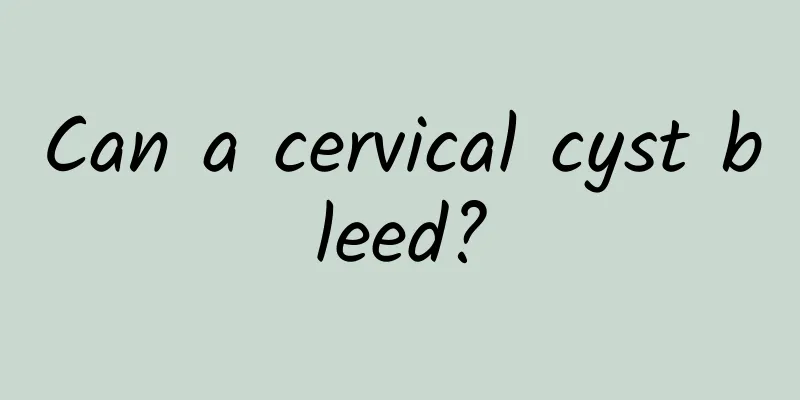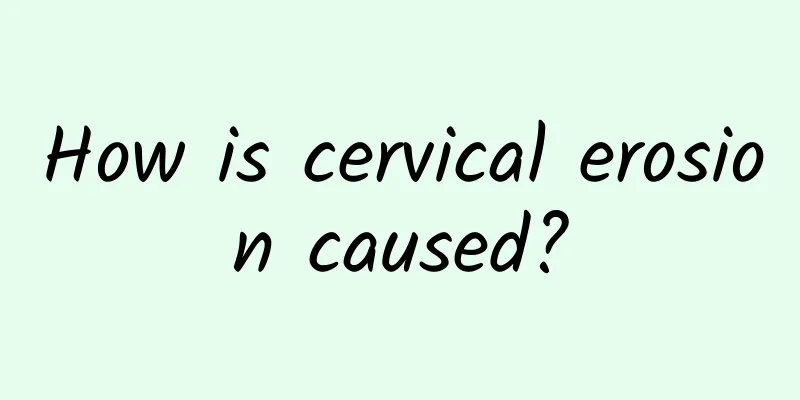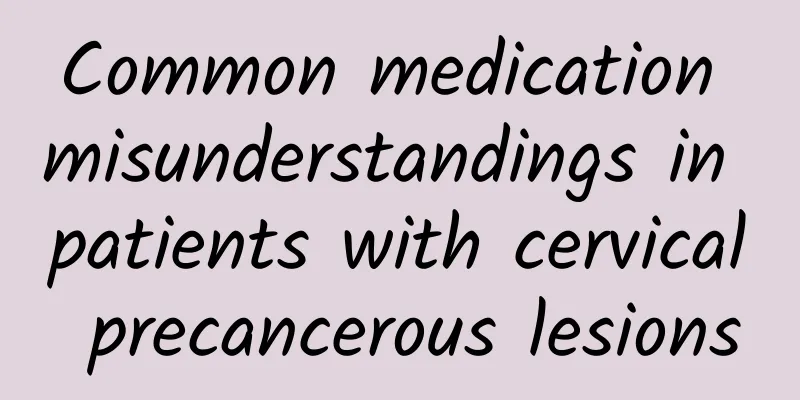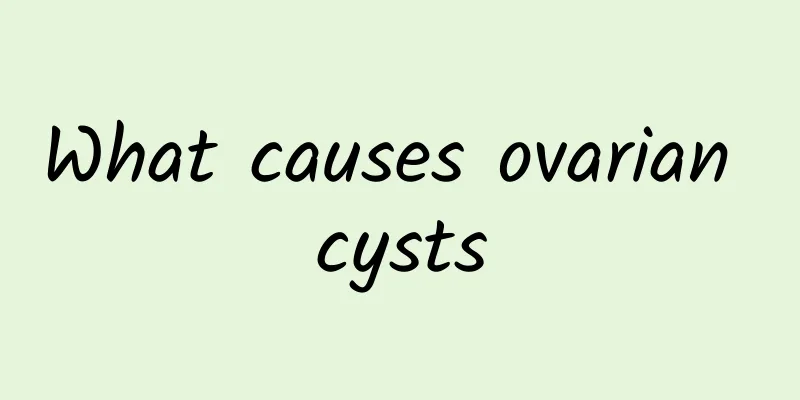Can a cervical cyst bleed?

|
Cervical Nabothian cysts generally do not bleed. They are mainly caused by the glandular openings of the cervical canal glands being covered, resulting in the inability of fluid to drain and form cysts. 1. Causes of cervical nabothian cysts: Cervical nabothian cysts are caused by the glandular openings of the endocervical glands being covered by the lymphatic epithelium, which results in the secreted fluid being unable to drain out and gradually accumulating to form cysts. This is a common physiological change and usually does not require special treatment. 2. Characteristics of cysts: Cervical nabothian cysts generally do not bleed. They are usually asymptomatic and do not affect daily life. Even if there are multiple cysts, there is no need to worry too much, because they do not cause any discomfort in most cases. 3. Bleeding in special circumstances: Some patients may bleed after sexual intercourse, but this is not caused by the rupture of the cyst itself, but by cervical inflammation or erosion. Long-term inflammatory stimulation may cause the surface of the cervix to become fragile, making it easy to bleed when touched. 4. Examination and diagnosis: If cervical nabothian cysts are found, especially multiple cysts with a diameter of more than one centimeter, accompanied by chronic cervicitis and contact bleeding symptoms, TCT (liquid-based cytology test) and HPV (human papillomavirus) tests are recommended. These tests can help rule out cervical precancerous lesions and ensure that there are no more serious problems. 5. Treatment recommendations: For patients with symptomatic cervical cysts, doctors may recommend some physical treatments, such as Lipknife surgery, cryotherapy, or cervical ablation. These treatments can effectively treat the diseased tissue on the surface of the cervix, relieve symptoms, and improve quality of life. 6. Daily care and prevention: Maintaining good personal hygiene habits and regular gynecological examinations are the key to preventing cervical problems. Avoiding bad lifestyle habits such as smoking and excessive drinking, maintaining a healthy diet and exercising regularly can help improve overall immunity and reduce the occurrence of gynecological diseases. The above explanations hopefully help you better understand cervical cysts and the problems they may cause. If you have any concerns, it is best to consult a professional doctor for more detailed and personalized advice. Remember, regular physical examinations are the best way to stay healthy. |
<<: Is it better to bleed or not bleed after abortion?
>>: What are the consequences of ovulation bleeding after sex?
Recommend
Who is not suitable for abortion?
Do you know that abortion refers to the terminati...
Experts explain how to care for patients with vulvar leukoplakia
As people pay more attention to women's healt...
What is bacterial vaginosis
What is bacterial vaginosis? This is a disease ca...
Prevention of cervicitis is extremely important
Women of childbearing age are often troubled by c...
How to take care of uterine fibroids after surgery What can I eat after uterine fibroids surgery
Although uterine fibroids are benign fibroids, th...
Is there a big difference between uterine cyst and pregnancy?
Uterine cysts are essentially different from preg...
What causes miscarriage? There are 5 reasons
There are many reasons for miscarriage, the most ...
The main differences between acute and chronic symptoms of adnexitis
The symptoms of adnexitis vary depending on the a...
The butterfly is so beautiful! 2 Yoga Tips to Balance Endocrine
Have you been feeling sleep depriv, menstrual irr...
How to treat giant uterine fibroids? The harm of giant uterine fibroids
Uterine fibroids are a common female disease. The...
What are the early symptoms of habitual miscarriage?
Habitual miscarriage is a huge blow to expectant ...
What are the consequences of a woman's hydatidiform mole?
Hydatidiform mole is a pregnancy-related disease ...
Four common causes of cervical hypertrophy
Cervical hypertrophy is a disease that seriously ...
Just 1 minute! Massage before bed to eliminate leg swelling
Many people suffer from swollen feet due to sitti...
Gluten-free diet for weight loss? Only treat gastrointestinal discomfort
What weight loss methods were popular in 2013? Wh...









